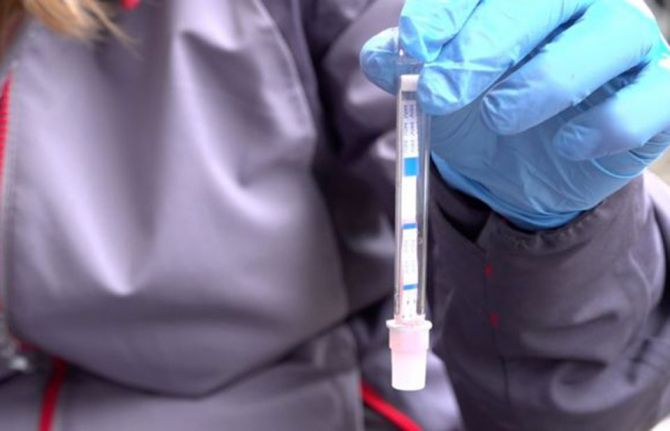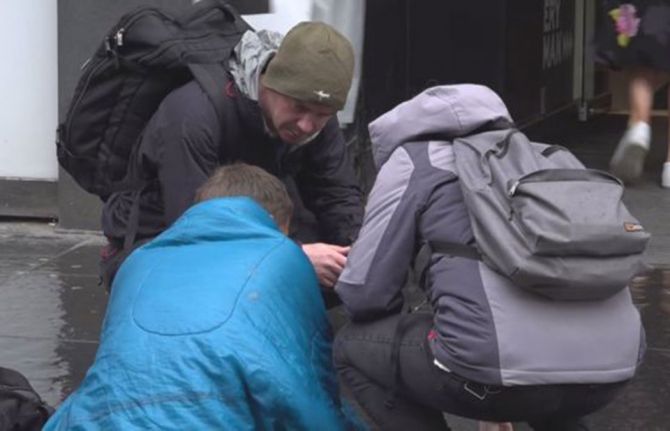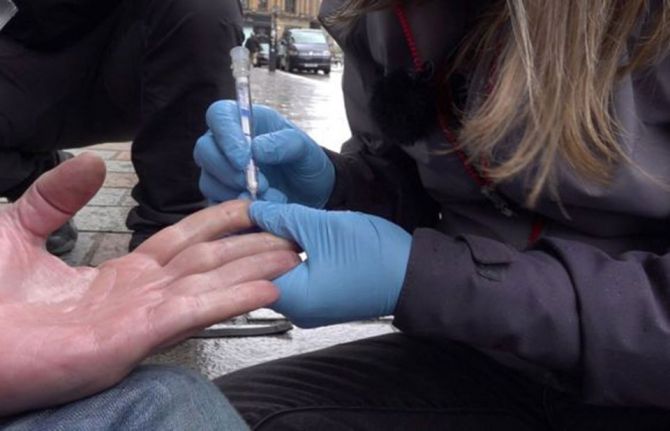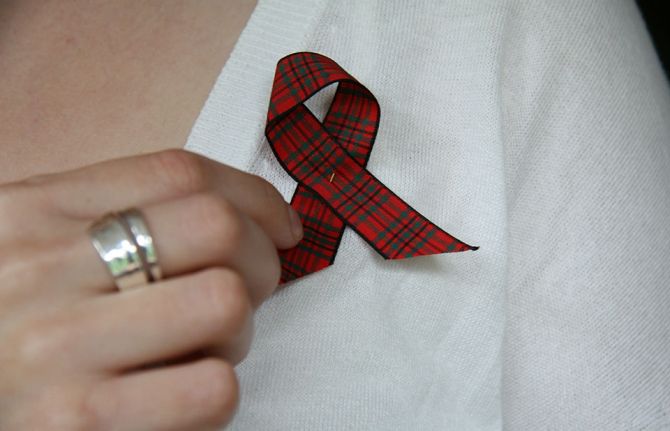




Feature Story
Unwavering care for people who inject drugs on the streets of Glasgow
18 September 2019
18 September 2019 18 September 2019In Scotland, United Kingdom, the widespread availability of HIV prevention and harm reduction programmes and the expansion of antiretroviral treatment have been effective in controlling the spread of HIV since the 1980s. However, in 2015 there was a worrying outbreak of HIV among people who inject drugs in Glasgow, with the number of new HIV diagnoses tripling in just three years.
UNAIDS spoke to Ruth McKenna from Waverley Care, Scotland’s leading charity providing HIV, hepatitis C and sexual health care and support to people across Scotland, who explained some of the work that the charity has being doing to respond to the outbreak.
“Glasgow has a good needle–syringe exchange programme, so initially there was uncertainty as to why the increase was happening,” said Ms McKenna. “However, evidence published recently shows the rise to be associated with homelessness, incarceration and a major shift to the injection of cocaine in Glasgow. The hit from cocaine doesn’t last very long, which can lead to people injecting more often. Using more needles also means a higher risk of sharing and therefore a higher risk of contracting HIV.”
Waverley Care operates a street support team, which began working in December 2018 after special, albeit temporary, funding came through from the National Lottery Community Fund. The street team operates in pairs, walking up and down Glasgow’s grid system of streets to check on people who are begging, offering them health services, support, a friendly chat and a listening ear.
Ms McKenna explains that poverty and trauma are often at the root of why people are using drugs and have become homeless. Many of the people the street team speak to have experienced trauma, often from a very early age. Most have similar stories she says—brought up in care, having experienced physical, sexual or emotional abuse and a cycle of offending and spells in prison. The drugs are a way of coping with and escaping the trauma, if only for a short while.
There is also still a lack of knowledge about HIV in Glasgow. Many people the Waverley Care street team meet still don’t know that people who are on treatment for HIV and who have a suppressed viral load cannot transmit the virus. They found that people are much more informed about hepatitis C, because it is more prevalent among people who inject drugs.
Before setting out, the pair of street support workers make sure they have their rucksacks, which are equipped with the tools they will need for the day ahead: foil, sterile injecting equipment, citric acid to clean the skin, condoms, sanitary towels, naloxone (for overdose prevention) and HIV testing kits.
“There are around 500 people who inject drugs in public places in Glasgow,” said Ms McKenna. “If we think they may be at risk of HIV we offer them a test. The 10- to 15-minute wait for the result also gives us time to chat, to let them know that the advances made in treatment mean that HIV isn’t the death sentence that people often think it is.”
The team carry out an average of three tests per week and since January 2019 the team has supported 17 people living with HIV in the city. They have had 28 referrals, but unfortunately not everyone is contactable or wants support.
HIV treatment is free on the National Health Service (NHS) in the United Kingdom and the team at Waverley Care work closely with NHS outreach nurses to ensure that necessary referrals are made and to keep people engaged with treatment.
“We’re always there to walk alongside anyone affected by HIV or hepatitis C,” says Ms McKenna. “Although they may not want our help this month, next month it might be another matter. We never give up on people.”



